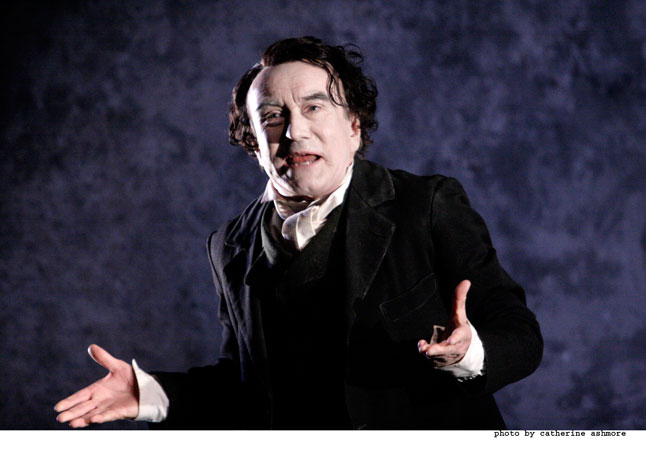‘My friends wouldn’t like the opera, they would say it is for old people.’ And there we have it, the damning verdict of an 11-year-old ending a discussion about the appeal (or not, evidently) of the art form to younger people. Thankfully that was before she had enjoyed, yes enjoyed, her introduction to opera at the Royal Opera House in Covent Garden.
‘Actually,’ she opined as we crossed the busy piazza, ‘it’s all right because some opera can be funny. It depends what opera you go to.’
I suspect this could be seen as a qualified success for ROH2, the contemporary arm of the Royal Opera House which is working hard to make opera appealing to a wider audience. This debut performance of the Opera Youth Company was a fine way to introduce our young skeptic because the company is made up of 39 young people aged between nine and twelve, and the music, therefore, was not ‘heavy’. The company was selected from an initial group of more than 400 school children through an extensive series of workshops. The aim is to offer young people from a wide variety of backgrounds with untapped potential the opportunity to discover and develop their talent. The Company is currently rehearsing almost every Saturday and there is a plan for them to perform on the main stage as a children’s chorus in an opera next Season.
Paul Reeve, the director of Education at the Royal Opera House, said: ‘All our artists strive to be the best they can be and that’s what the Youth Opera Company’s about: giving young people the opportunity and support to realise their potential. At every session with them we’re all inspired by their commitment, talent and creativity. The children have learnt that being in a chorus requires a broad range of skills: acting, movement, stage craft, teamwork, creativity and of course singing.’
The modern space which is home to ROH2 – the Linbury Studio, is a modern box (a good thing!) which is reminiscent of the Courtyard Theatre, the temporary home in Stratford to the RSC) and the Roundhouse. The place is not stuffy and while this did feel like an end of term show with proud parents cooing at solos, or commenting on songs that may have resonated around the house, the sheer talent of the children shone through in their telling of two original pieces Beginners and Drowning in Imagination.
The former told the story of pantomime waifs based on work done by Ellen Barlee who highlighted the shocking life of children taken from the streets to perform on stage. (Worth digging out for further study, in fact.) The story was told through Polly, who runs away from home to be on the stage and is befriended by a group of waifs. Drowning in Imagination is a darker piece dealing with the themes of friendship and play, and what can happen when things go wrong. The music was light and although sometimes it was difficult to understand the libretto, we put this down to our own lack of opera nous.
So what do members of the company get out of it? Eden Maddix Odeniyi said: ‘I have been taught how to breathe! Some of the activities have been quite challenging, like having to sing in a higher pitch but our singing coordinators have trained and bent our voices into shape. They really believe in us.’
But ROH2 is making waves for adults too. The experimental and innovative pieces coming out of the OperaShots season are attracting great acclaim. This year’s offering featured new works by Stewart Copeland (the former Police drummer) and former Python Terry Jones.
Copeland’s The Tell-Tale Heart was based on a short story by Edgar Allan-Poe about a man who murders his neighbour and subsequently descends into madness. (I note the piece is having a run at the Lyric Hammersmith, without the singing.) Richard Suart held the audience with his eye, trying to convince us that his motivation was just – ‘They say madness is heightened awareness of the senses.’ His mania was brought to life by the projection of the eye on the backdrop, which seemed to be drawing us in, complicit in the crime. The music was accessible, repetition adding humour and in parts it was quite lyrical.
Jones collaborated with Anne Dudley, who founded Art of Noise and won an Oscar for The Full Monty soundtrack for The Doctor’s Tale a beautiful, whimsical piece about the power of love. We meet Dr Scout, a dog who is loved by his patients who protest when he is hauled before the General Medical Council which wants to strike him off. Jones can tell a story, and the players – dressed in 1950s style, interpreted it with great humour and pace. Dudley’s score was accessible, funny and touching, ensuring the heartwarming story remains in this new opera heart.
Go on give it a go!.
IMAGE ABOVE: Darren Abrahams as Dr Dog/Scout in the Terry Jones and Anne Dudley composition The Doctor’s Tale Images Catherine Ashmore.



